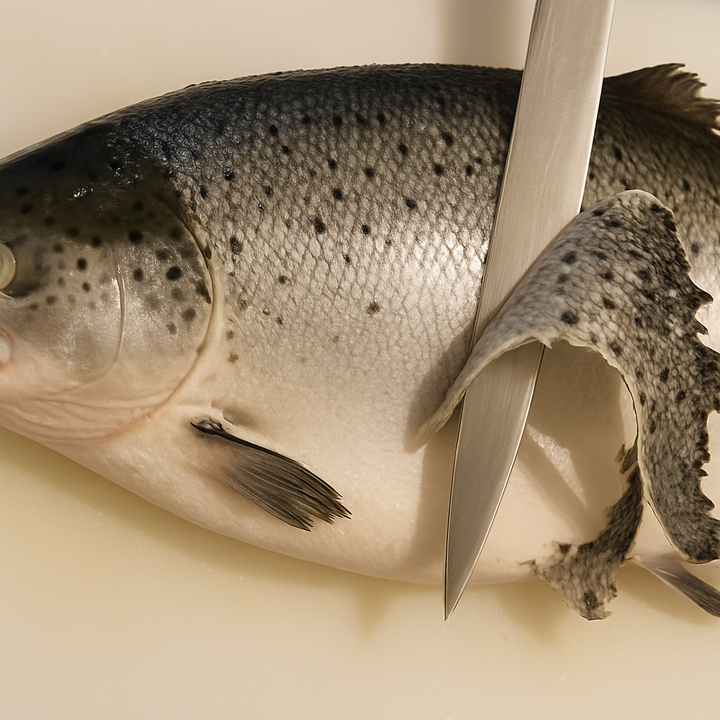Japanese Melon Varieties: From Cantaloupe to Premium Yubari King
Japan's premium melons, from common cantaloupe to luxurious Yubari King, are prized for exceptional sweetness, aroma, and beauty. Meticulous cultivation yields delicacies like intensely sweet cantaloupes, honey-like Kishu musk melons, juicy Crown melons, and the unrivaled, flawless Yubari King

In Japan, melons are not merely a refreshing summer treat but also a symbol of luxury, craftsmanship, and the nation's meticulous approach to agriculture, making them a prized and meaningful gift during the Chūgen festival, a centuries-old tradition where people express gratitude and foster connections through the exchange of carefully selected presents.
Japanese farmers take great pride in cultivating the perfect melon, employing innovative techniques and painstaking attention to detail to create fruits that are not only delicious but also visually stunning.
The result of this dedication is a range of highly sought-after melons both within Japan and around the world.
From the everyday cantaloupe to the crown jewel of Japanese melons, the Yubari King, each variety boasts its own unique characteristics and allure.
The Familiar Favorite

When most people think of melons, the cantaloupe often comes to mind first.
With its netted skin and vibrant orange flesh, the cantaloupe is a staple in fruit bowls worldwide.
In Japan, however, the cantaloupe takes on a new level of prestige.
Japanese cantaloupes are typically smaller and rounder than their Western counterparts, with a more pronounced netting pattern on the skin.
They are prized for their intense sweetness, which is achieved through careful cultivation techniques.
One such technique is the use of "net cups" or "bead molds". As the young melons grow, they are placed in semi-circular cups or molds that help them develop their signature shape and netting pattern.
This not only creates an attractive appearance but also promotes even ripening and concentrates the melon's sugars.
Another key aspect of Japanese cantaloupe cultivation is the practice of "night soil-grown."
This traditional method involves using human waste as a fertilizer, which is believed to contribute to the melons' superior flavor.
While this practice has largely been phased out due to sanitation concerns, it speaks to the lengths that Japanese farmers have gone to in pursuit of the perfect melon.
Kishu Musk Melon
While not as well-known as the cantaloupe, the Kishu melon is a beloved variety in Japan.
Originating from the Kishu region in Wakayama Prefecture, these melons are instantly recognizable by their bright yellow skin and delicate white stripes.
Kishu melons are prized for their juicy, almost creamy texture and their honey-like sweetness. They have a relatively short shelf life, which only adds to their exclusivity and allure.
One of the most distinctive features of the Kishu melon is its aroma. When ripe, these melons emit a powerful fragrance that is often compared to a bouquet of flowers.
This aroma is so integral to the Kishu melon experience that some high-end fruit shops in Japan even allow customers to "sniff test" the melons before making a purchase.
Interestingly, Kishu melons are often given as gifts in Japan, particularly during the summer months.
Their bright color and sweet aroma make them a perfect symbol of summer's bounty, and they are often presented in ornate gift boxes that showcase their beauty.
Crown Melon
Moving up the ladder of luxury, we come to the Crown melon. As its name suggests, this melon is considered royalty among Japanese melon varieties.
Crown melons are a type of muskmelon, characterized by their greenish-white skin and intricate netting pattern.
They are larger than cantaloupes, often weighing over 2 kilograms (4.4 pounds), and have a distinctively elongated shape.
But what really sets Crown melons apart is their unparalleled sweetness. Crown melons boast sugar content of over 18 degrees Brix (a measure of sugar content), making them one of the sweetest melon varieties in the world.
This sweetness is balanced by a refreshing juiciness and a melt-in-your-mouth texture.
Cultivating Crown melons is an art form in itself. The melons are typically grown in greenhouses, where every aspect of their environment is meticulously controlled.
The temperature, humidity, and even the amount of sunlight each melon receives are carefully regulated to ensure optimal growth and sweetness.
This level of care and attention comes at a price. Crown melons are some of the most expensive melons in Japan, with a single fruit often selling for over 10,000 yen (roughly $90 USD).
Despite this hefty price tag, Crown melons remain highly sought-after as luxury gifts and special occasion treats.
Yubari King
At the pinnacle of Japanese melon hierarchy sits the Yubari King. This melon is the stuff of legends, renowned for its unrivaled sweetness, aroma, and visual perfection.
Yubari King melons are a variety of cantaloupe, but they are a far cry from the everyday melons found in most grocery stores.
These melons are exclusively grown in the small city of Yubari, on Japan's northern island of Hokkaido.
The cool climate, mineral-rich volcanic soil, and the skill of Yubari's melon farmers all contribute to creating a truly exceptional fruit.
The cultivation of Yubari King melons is a meticulous process that involves hand-pollination, careful pruning, and even the use of "hats" to protect the melons from sunburn.
The melons are harvested at peak ripeness, ensuring maximum sweetness and aroma.
The result is a melon that is almost too perfect to be real. Yubari King melons are known for their flawless round shape, their delicate netting pattern, and their vibrant orange flesh.
The aroma of a ripe Yubari King is said to be so potent that it can fill an entire room.
Of course, such perfection comes at a cost. Yubari King melons are the most expensive melons in the world, with a single melon often selling for over 200,000 yen (roughly $1,800 USD).
They are often sold in high-end department stores or at auction, where they are treated more like works of art than simple fruits.
Despite their astronomical price, Yubari King melons remain a symbol of Japan's commitment to quality and craftsmanship.
They represent the pinnacle of what can be achieved when human ingenuity and dedication are applied to the humble task of growing a melon.
Conclusion: A Melon for Every Occasion
From the humble cantaloupe to the exalted Yubari King, Japanese melons offer a spectrum of flavors, textures, and experiences.
Each variety tells a story of the land it was grown on, the farmers who nurtured it, and the culture that celebrates it.
Whether enjoyed as a refreshing summer snack or given as a luxurious gift, Japanese melons are more than just fruits.
They are symbols of Japan's deep appreciation for nature's bounty and the human effort that goes into perfecting it.


